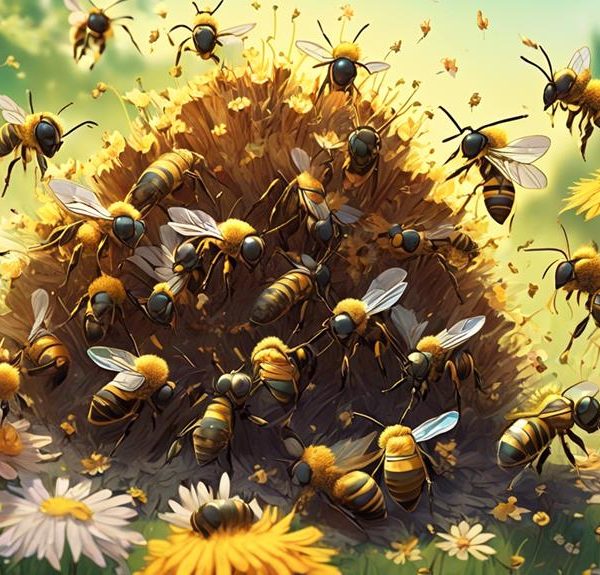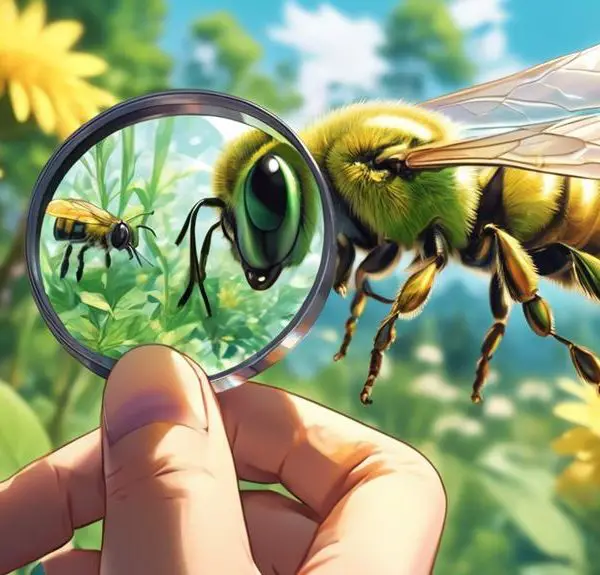Wondering why sweat bees are attracted to your perspiration? Discover the unique relationship between these insects and humans that goes beyond a simple sting.
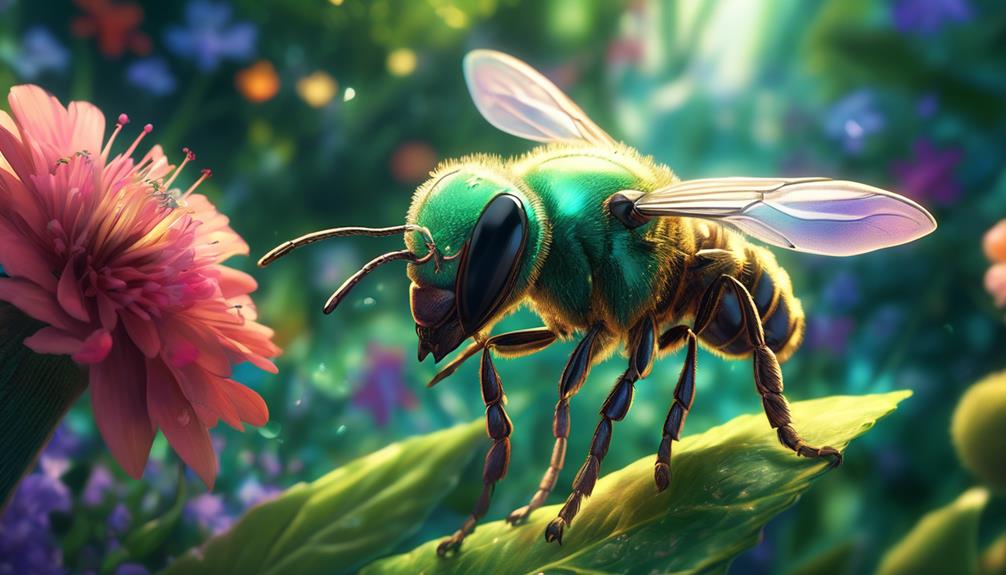
Do Sweat Bees Lick You
Despite your initial skepticism, sweat bees, contrary to their slightly off-putting name, are not only attracted to your perspiration but they do indeed 'lick' you. You're probably wondering how such a seemingly bizarre interaction takes place, and what it might mean for you.
As it turns out, these small, often metallic-colored insects have a rather unique relationship with humans, and their unusual attraction to our sweat is a fascinating subject. So, don't swat away your curiosity just yet; there's much more to learn about these intriguing little creatures.
Key Takeaways
- Sweat bees are attracted to humans because of the salt content in our sweat.
- Sweat bees lick the salty sweat from our skin using their proboscis, a tube-like structure.
- The licking process is harmless and does not have any adverse effects on human health.
- Limiting sweat production and maintaining a clean environment can help deter sweat bees.
Understanding Sweat Bees
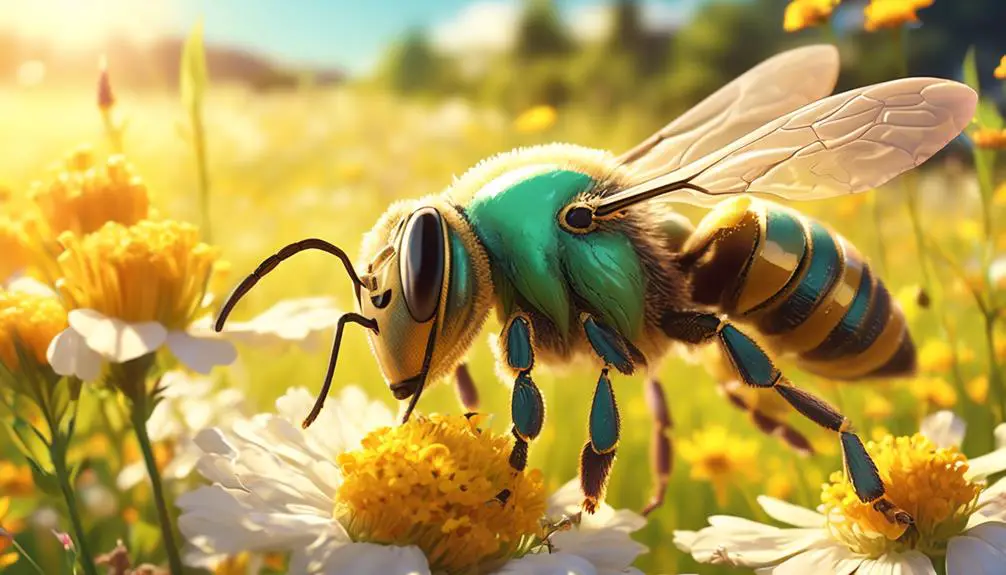
To truly appreciate sweat bees, you'll need to delve into their fascinating biology, behavior, and intricate role within our ecosystem. You may not realize it, but sweat bees, or Halictidae, are part of the third largest family of bees. Contrary to what their name suggests, they don't sweat. They're called 'sweat bees' because they're attracted to human perspiration due to its high salt content.
Biologically, sweat bees are unique. Unlike their cousins, the honey bees, sweat bees aren't eusocial. Some species are solitary, some are communal, and others exhibit an intriguing form of social behavior called 'semi-sociality'. This means they display varying levels of social structure, ranging from no social structure to a complex one with a queen and workers.
Analyzing their behavior, you'll find that sweat bees are pollinators, and a very vital part of our ecosystem. They help in the pollination of wildflowers, fruits, and vegetables, thus contributing significantly to biodiversity and food production.
Sweat Bees' Attraction to Humans
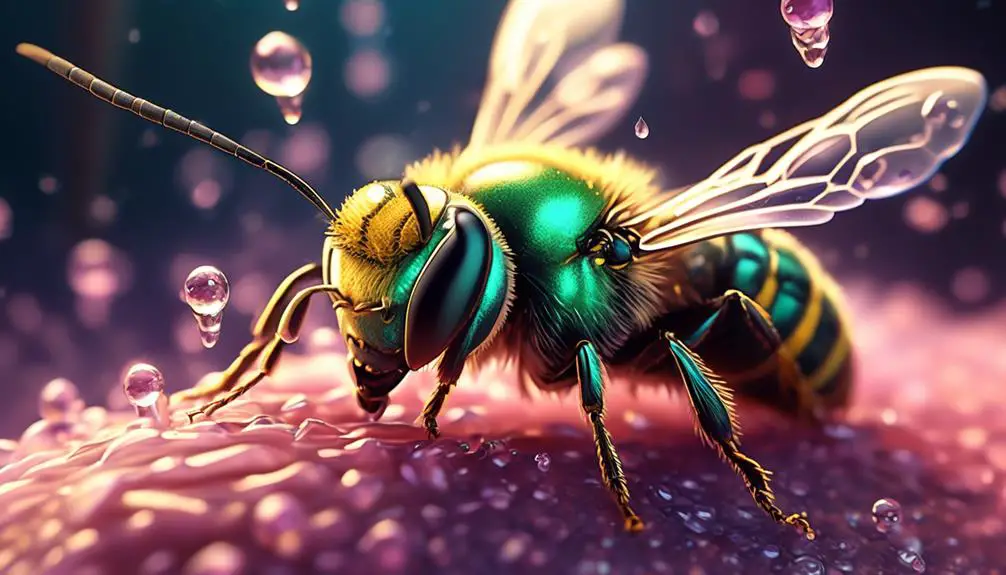
Despite their intimidating name, sweat bees are predominantly drawn to humans for the salt content in our sweat, not for malicious intent. These little creatures have a taste for salt, which is hard to come by in nature but abundant in human perspiration. It's a simple case of supply and demand: we have what they want, and they're willing to brave our presence to get it.
These bees, while drawn to our sweat, aren't really interested in harming us. They're not after our blood like mosquitoes, nor are they trying to lay eggs under our skin like certain parasitic insects. They're just after our salt.
Here's a quick breakdown of their attraction:
Sweat Bees | |
|---|---|
What attracts them? | Salt in human sweat |
Are they harmful? | No, they are not typically aggressive |
Why do they lick us? | To consume the salt in our sweat |
How Sweat Bees Lick You
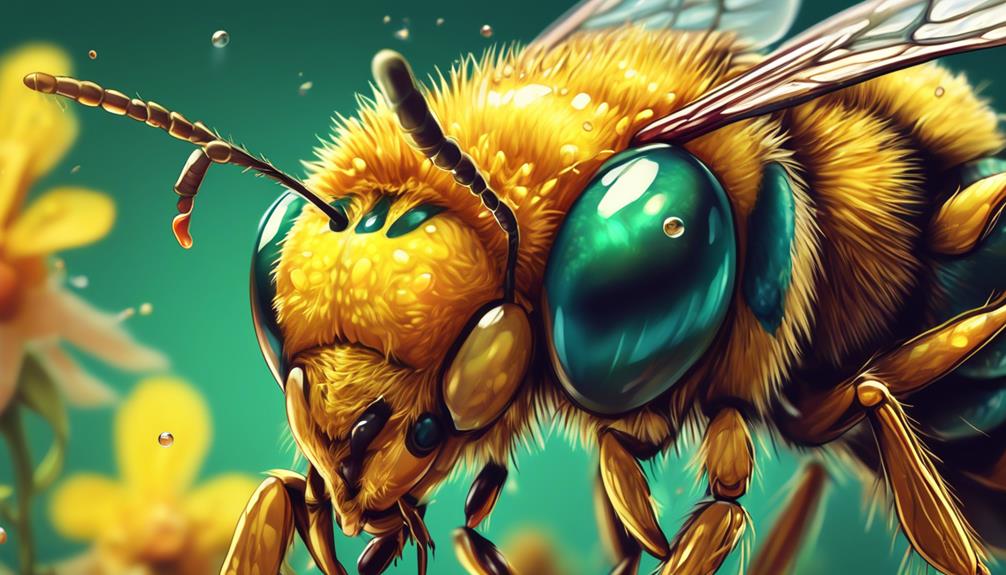
When a sweat bee lands on your skin, it's not poised to sting; instead, it's gearing up to lick the salty sweat from your skin with its specially adapted mouthparts. These mouthparts, or proboscis, are a fascinating example of evolutionary adaptation. The proboscis, a tube-like structure, extends to reach the sweat on your skin. It's designed to absorb liquid, much like a sponge, enabling the bee to suck up your sweat with ease.
Now, you might be wondering what happens next. The collected sweat is ingested and filtered within the bee's digestive system. The salts and minerals found in your sweat, particularly sodium, are valuable nutrients for the bee. They're vital for its reproduction and survival, explaining why these bees are often found hovering around humans.
Remember though, sweat bees aren't aggressive and the licking process is harmless. They're just doing what they need to survive. If you stay calm when a sweat bee lands on you, you're unlikely to get stung. In fact, you're playing a small, but crucial part in the bee's survival, simply by sweating.
Effects of Sweat Bee Licks

You mightn't feel the tiny tickle of a sweat bee's lick, but rest assured, this minuscule interaction has no adverse effects on your health. The sweat bee isn't injecting you with venom or any harmful substance. It's merely consuming the salt from your sweat.
While a sting from a sweat bee can cause a mild reaction, such as a small bump or itchiness, this isn't a result of the licking behaviour. Their sting isn't particularly potent, and symptoms usually subside within a few hours. However, like any insect sting, there's a small risk of an allergic reaction in hypersensitive individuals.
When sweat bees are licking, they don't break the skin. Therefore, the possibility of transmitting diseases, like those carried by mosquitoes, doesn't exist.
Scientifically, it's interesting to note that sweat bees play a vital role in our ecosystem. They're effective pollinators, contributing to the biodiversity of plant species. So, while their licks don't have a direct impact on you, they're positively impacting the world around you.
Ways to Avoid Sweat Bees

While sweat bees may seem bothersome, there are practical steps that can be taken to keep them at bay.
First, it's essential to understand that these insects are attracted to human perspiration, which provides them with salt, moisture, and other nutrients. Therefore, you can significantly reduce their attention by limiting your sweat production. Try to stay cool and hydrated, especially during hot weather or outdoor activities.
Wearing light-colored, loose-fitting clothes can also deter sweat bees, as they're typically drawn to dark, tight clothing. Additionally, you should avoid using perfumes or scented body products as these can lure the bees.
Maintaining a clean environment is crucial too. Sweat bees are attracted to food and drinks, so ensure to clean up any spills or leftovers immediately. Regularly washing your outdoor furniture and trash cans can also help deter these bees.
Conclusion
So, you see, sweat bees do indeed lick you, primarily attracted by the salt in your sweat. This unusual interaction can lead to mild discomfort but is generally harmless.
However, understanding their behavior can help you avoid these tiny buzzers. Remember, it's not personal, you're just a salty snack to them.
Next time you're outdoors, take precautions to deter these bees and make your outdoor experience a more pleasant one.

